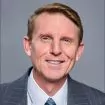- within Intellectual Property topic(s)
- with readers working within the Media & Information and Retail & Leisure industries
- within Compliance, Litigation and Mediation & Arbitration topic(s)
In this patent infringement action, Plaintiff intended to use a damage expert to support a "lost profits" measure of damages and/or a "reasonable royalty" measure of damages. Defendant moved to exclude the lost profits analysis because the damage expert ignored the testimony of Plaintiff's corporate designee that contradicted his ultimate conclusion.
In the motion to exclude, as explained by the district court, Defendant argued that the damage expert "ignores" testimony from Plaintiff's corporate designee (Patrick Cox) that purportedly contradicts his ultimate conclusion that, but for Defendant's infringement, Plaintiff would have realized the sales that Defendant obtained; and (b) Mr. Holzen "lacks information sufficient to reliably determine [Plaintiff]'s profit per call, because that information is based on negotiated customer agreements, which vary by customer."
The district court disagreed. First, the district court explained that Plaintiff's expert's “lost profits analysis employs two methods – the "Panduit" test and the two-supplier market test. Both are recognized frameworks for demonstrating but-for causation. Micro Chem., Inc. v. Lextron, Inc., 318 F.3d 1119, 1122 (Fed. Cir. 2003) (internal citations omitted). Moreover, amongst the data Mr. Holzen considered in formulating his "lost profits" opinion was the testimony of Plaintiff's corporate representative that Defendant accuses him of ignoring. That some of that data – i.e., portions of the corporate representative's deposition testimony – conflict with Mr. Holzen's ultimate conclusion does not make Mr. Holzen's opinion inherently unreliable. See Micro Chem., Inc. v. Lextron, Inc., 317 F.3d 1387, 1393 (Fed. Cir. 2003) ("That [an expert's damages] analysis relie[s] on his resolution of . . . factual issue[s] is not grounds for excluding his testimony under Rule 702.").” The district court concluded that this was particularly applicable here where the fact witness did not have access to all of the information that was provided to the expert.
Turning to the second reason, the district court saw “no reason why Mr. Holzen's lost profits opinions should be considered unreliable simply because Plaintiff negotiates its customer agreements individually rather than employing standard pricing. Mr. Holzen considered a variety of data points to determine what Plaintiff would have charged Defendant's customers "but for" Defendant's alleged infringement, including the average price Plaintiff charged all of its customers over various time frames, Plaintiff's stances in negotiations with those customers, the importance of certain customers to Plaintiff's business, and insight offered by Plaintiff's corporate representative in his deposition. Such an approach appears reasonable in light of Plaintiff's pricing and customer contracts. See W.L. Gore & Assocs., Inc. v. C.R. Bard, Inc., 198 F. Supp. 3d 366, 374 (D. Del. 2016) ("[T]he patentee must show a reasonable probability that 'but for' the infringement, it would have made the sales that were made by the infringer." (quoting Rite-Hite Corp. v. Kelley Co., 56 F.3d 1538, 1545 (Fed. Cir. 1995)). Defendant's arguments to the contrary go to the weight to be afforded to Mr. Holzen's testimony, not its admissibility. Summit 6, LLC v. Samsung Elecs. Co., 802 F.3d 1283, 1299 (Fed. Cir. 2015).”
Accordingly, the district court denied the motion to exclude the damage expert's testimony.
TRUSTID, Inc. v. Next Caller, Inc., Case No. 18-172 (MN) (D. Del. Apr. 2020)
Originally published Jeffer Mangels, May 2020
The content of this article is intended to provide a general guide to the subject matter. Specialist advice should be sought about your specific circumstances.


